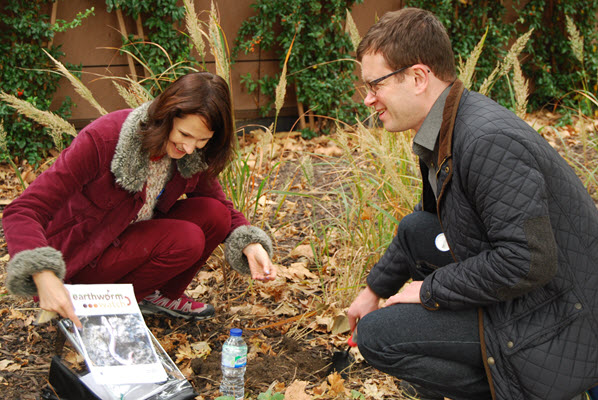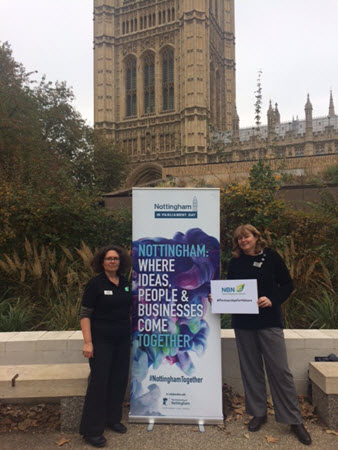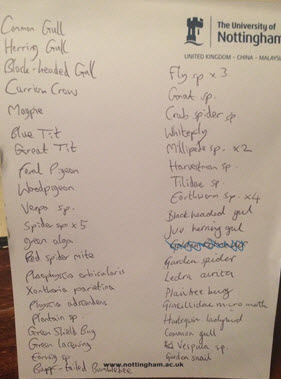In October 2016 the National Biodiversity Network (NBN), arranged a panel discussion at the House of Lords as part of a unique event – Nottingham in Parliament Day.
As our offices are based in Nottingham we wanted to be part of the event and have an opportunity to present the excellent work of the Network at Parliament.
The session was chaired by Barry Gardiner MP, former chair of the APPG for Biodiversity and Lord Hunt of Chesterton.
On the panel with Jo Judge, our CEO were David Askew, Director of Evidence at Natural England and Dr Sara Goodacre, Associate Professor at the University of Nottingham who manages their Spider Lab and represented Open Air Laboratories (OPAL).
The informal style of the session allowed attendees from a wide range of organisations including Defra, OPAL, the Natural History Museum and a number of interested parties and parliamentarians to discuss freely the challenges affecting collection of biodiversity data and engaging ‘citizen scientists’.
There was consensus among those who attended that the Network and other partners need to work together to create stories from that data. It was agreed that as conservationists we believe that protecting nature is right, but we have difficulty communicating with those that may not hold that view or think that green development is a barrier to progress. We need to answer the question ‘How can we engage the public to value something that they do not see?’
Opal will be working with community groups across the UK to develop those connections and there is an opportunity for partnership working in ensuring data they collect flows into the NBN Atlas.


Before the panel discussion staff from the NBN, the Natural History Museums’ ID trainers and other volunteers took part in a ‘nature survey’ in Victoria Tower Gardens, located next to the Palace of Westminster. Within an hour they had managed to record over 60 different species – this was higher than expected for this urban, highly managed park. Its purpose was to raise awareness to politicians of the biodiversity that can be found literally on their doorstep.

Speaking after the event Jo Judge stated that “We are good at collecting data but not at how it’s analysed, visualised and used. The UK has a rich history of biological recording. Data is sat in notebooks and archives in people’s homes and offices. It is important to record that data so we know what changes there have been and that the information is used to inform future changes. The NBN Atlas is an essential tool in meeting that need. The NBN Atlas can be used by the professional recorders and school children to examine data that can be used to influence the decisions we make.”
David Askew reflected “We agreed that whilst data is a fundamental foundation for all our work in relation to the natural environment – it is not enough on its own – we need it to inform our inspiring stories and our understanding of what’s happening and what works. And further, there was a lot of discussion and agreement on the importance of engaging people – putting people at the heart of our thinking and actions, a message very much at the heart of our Natural England Conservation Strategy.”
Lord Hunt has generously agreed to host another event at the House of Lords within six months to allow us to continue the discussions and engage the construction sector in the value of biodiversity data. Keep in touch with the NBN if you want to find out more.
